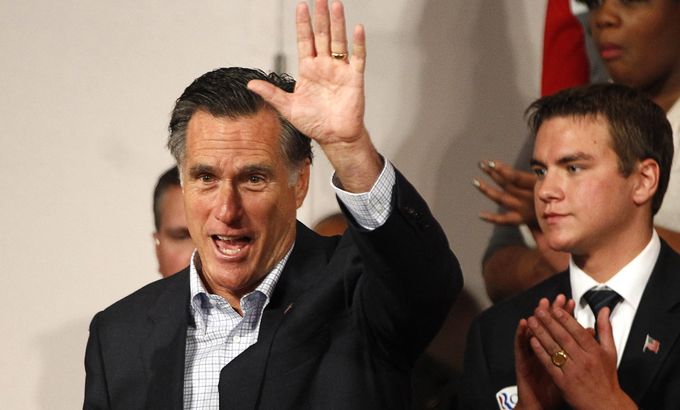
Mitt Romney’s tactical dilemma
Should the expected Republican presidential candidate shift to the right or pivot to the centre?
This week Newt Gingrich will become the latest Republican contender to call it quits on his 2012 US presidential ambitions. The former speaker of the House of Representatives is expected to suspend his campaign and endorse Mitt Romney, leaving Ron Paul as the former Massachusetts governor’s only rival in the race for the Republican nomination.
|
“There was not enough anti-Romney votes [for Newt] to continue on. I think Romney won the central elections question of the entire campaign and that essentially boiled down to: ‘Who can beat Barack Obama?“ – Rick Tyler, a former Gingrich spokesman |
Romney is now working to win over his former rivals with a scheduled meeting with Rick Santorum on Friday and Gingrich’s endorsement due some time this week.
The one-time rivals are expected to eventually fall in line behind the expected Republican presidential nominee. But both Santorum and Gingrich are looking for assurances first.
Santorum wants to make sure conservatives’ priorities are reflected in Romney’s campaign. He is looking for assurances from Romney during a private meeting but is not expected to offer an immediate endorsement. Gingrich wants to repair his reputation within the party, as well as pay off at least $4.5 million in campaign debt.
But as Romney moves into general election mode and focuses on how to secure a victory against Barack Obama, the US president, he faces something of a tactical dilemma.
|
“Everything Newt Gingrich has said about Mitt Romney is 100 per cent true. He will not be able to debate Obamacare. He will not be able to explain the difference. He will not stand by any principles. He will not go toe-to-toe. What he will do is be not-Barack Obama and he is the best not-Barack Obama that is currently available …. This election will be a referendum on Barack Obama.”
– Michael Graham, a talk radio host |
For the better part of a year, he has tethered himself to an array of positions designed for the Republican presidential primaries – stances that have often put him to the right of where he has been throughout much of his career and which, in turn, raise questions about what direction he really wants to go in.
In addition to this, he faces what could be described as an enthusiasm deficit – with the right of the party in particular failing to get excited about the man who will likely carry the Republican banner in November.
So, should Romney move to the right to attract his party’s base or pivot to the centre to attract the independents who in many instances decide who gets into the White House?
Inside Story: US 2012, with presenter Anand Naidoo, discusses with guests: Michael Graham, a talk radio host and Tea Party supporter who used to run the “Anybody but Mitt” website; Ford O’Connoll, a political strategist who worked on John McCain’s election campaign in 2008; and Rick Tyler, a former spokesman for Newt Gingrich who has been advising the pro-Gingrich Superpac.
|
“What Mitt Romney needs to be careful of is that he cannot afford to ignore the base. But at the same time he must push to win over a portion of Hispanics and he must push to win over that seven to 12 per cent of the independent swing vote. The big thing for Mitt Romney is to stay true to his conservative principles but also show that this is a referendum on President Obama’s abysmal economic record.” Ford O’Connoll, a political strategist who worked on John McCain’s 2008 election campaign |